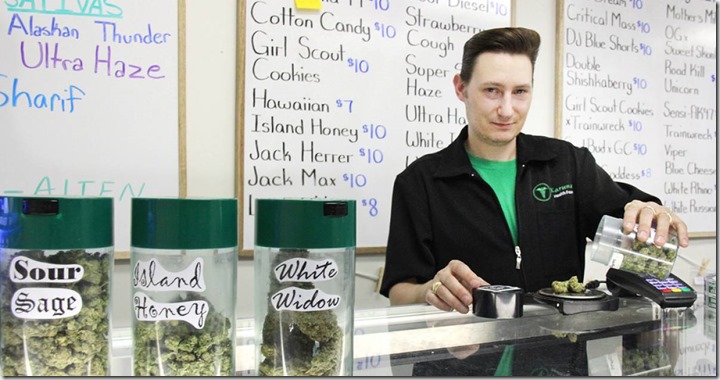by Jerry Golick
Introduction
The recently published guidelines by the Collège des médecins du Quebec (CMQ) with respect to prescribing medical cannabis contravene both the spirit and intent of the current Health Canada regulations. After dithering for over a year on their creation, these “Research Protocols” make it more challenging than ever for a patient in Quebec to get a prescription, and to maintain it.
Given the well-understood and accepted safety profile of cannabis, especially when compared to virtually all other prescription medications, the tremendous amount of anecdotal and research evidence that is available, and the constitutional rights granted by the courts to all Canadians to have access to this therapy, the CMQ’s position can only be seen as indefensible, ineffective, and perhaps immoral.
The intent of this brief paper is to provide background to this situation, and introduce a call to action for all interested parties.
History
Numerous legal challenges have made one point clear when it comes to medical cannabis: Canadians have a constitutional right to use it with a medical prescription if they so desire, and Health Canada must facilitate that access. Both the Marihuana Medical Access Regulations (MMAR) and Marihuana for Medical Purposes Regulations (MMPR) were created because of court order to facilitate access to cannabis, since potential patients had to sometimes see over 40 doctors before they could find someone who would prescribe. The courts also found (in a case called Parker) that the MMAR regulations were much too restrictive. In fact, on the Health Canada web site, they state quite clearly that they are only doing this because the court required it. In order to achieve this objective, the older MMAR was replaced by the MMPR. Under these new guidelines, any physician in Canada is authorized to prescribe cannabis (though Health Canada refuses to call it a “prescription” since that would imply that cannabis is a medicine) by providing 4 pieces of information:
 1) Name of the doctor
1) Name of the doctor
2) Name of the patient
3) Daily amount prescribed (in grams)
4) Duration of the prescription
That’s it, and that’s all. No need to indicate the condition being treated, what other doctors were consulted, what other medications were tried, etc. Just 4 basic pieces of information (like any prescription).
Medical associations and colleges had over a year to prepare for these new regulations, yet virtually none of them did anything about it until the MMPR came into effect in April 2014. When they finally did, their protocols were much more stringent and complex than those required by Health Canada. In my opinion, the CMQ’s guidelines are the most challenging and onerous of all.
The CMQ Position
Even though the CMQ had well over a year to prepare its position on medical cannabis, it essentially did nothing until the official date the new regulations came into place in April 2014. Rather than agree to conform to Health Canada’s regulations, they chose instead to effectively halt all prescriptions in Quebec, using the following reasoning:
1) There is no evidence for the use of cannabis as a medicine.
2) It is therefore an experimental therapy.
3) Experimental therapies can only be prescribed under the umbrella of a “Research Project”.
4) New protocols would have to be created for this project and would be ready by June 2014.
5) Until then, even those with prescriptions (from the older MMAR program) were technically not allowed to be prescribed by Quebec physicians.
Let me take these one at a time.
1) There is no evidence for the use of cannabis as a medicine: In fact, there is a mountain of evidence supporting the use of cannabis as a medical therapy. There are even quite of few of the “gold standard” Phase 3 trials (more on this later). Even Health Canada, who hasn’t “approved” of medical cannabis, has posted a lengthy document on the current evidence.
2) It is therefore an experimental therapy: Given the amount of evidence, cannabis can hardly be considered experimental. It is not a new drug. It has been used as medicine for over 5000 years, and we have the documented history to prove it. In fact, millions of people around the world use it every day. The US Drug Enforcement Agency estimates that upward of 25 million tons of marijuana is consumed just in America every year, which works out to something like 2 million joints every day. And this has been going on for decades. In addition, there are over 18,000 research papers that have been published on cannabis just in the last 15 years. The effects are well known. This is not the characteristic of an experimental therapy.
3) Experimental therapies can only be prescribed under the umbrella of a “Research Project”: I am all in favour of doing research, and collecting appropriate data about on medical cannabis, not because it is experimental, but rather because it would provide valuable information on how and why people are using it. In that sense, I agree with the CMQ. However, when participation in this project (and all of its heavy handed hoops which must be jumped through) is the only way that a citizen of Quebec can access, then I say something is quite wrong.
What is involved? Consider the following:
 a) Only doctors who are classified as “Investigators” can prescribe. To become an investigator, the doctor must take a training course. These courses will not be accredited (towards their professional continuing medical education), and they will be time consuming. What doctor will be interested in signing up for such a thing? In fact, the current waiting list to see some doctors in Quebec about cannabis is over 2 years! These regulations will do little to improve the situation.
a) Only doctors who are classified as “Investigators” can prescribe. To become an investigator, the doctor must take a training course. These courses will not be accredited (towards their professional continuing medical education), and they will be time consuming. What doctor will be interested in signing up for such a thing? In fact, the current waiting list to see some doctors in Quebec about cannabis is over 2 years! These regulations will do little to improve the situation.
b) Patients must agree in writing to being part of the research project, sign waivers of liability, etc. Far in excess of what is required by Health Canada. If any patient chooses to “opt out” they will not receive any cannabis.
c) The multi page forms must be filled out BY HAND not only during the initial interview, but on every follow up interview. Considering that prescribing cannabis is not covered by RAMQ (i.e. Medicare) what doctor will be willing to spend an hour with a patient filling in these forms? Further, in this modern day and age the need to manually fill in forms is nothing short of ludicrous.
d) There is no public documentation available as to how this data will be used, by whom, how it will be secured, etc.
4) New protocols would have to be created for this project and would be ready by June 2014: The protocols which were supposed to be available in June 2014, were delayed 3 times and were only announced in April 2015. I should note at this point my deep appreciation to Dr. Mark Ware, as well as certain Licensed Producers (Bedrocan, Tweed, Mettrum) for their tremendous effort and support in the creation of these regulations. Without their help, I imagine we would have to wait another year at least, if not more.
Phase 3 Trials
 The foundation for the claim of lack of evidence centers on something called Phase 3 Trials. These trials are part of the process which must be followed by a pharmaceutical company when they want to bring a new drug to market. It is true that over the last 20 years there are have been less than 2 dozen of these trials using smoked cannabis. They are very costly to perform, and cannabis can’t be patented (it’s a plant). Therefore, there was little motivation on the part of any drug company to perform these trials.
The foundation for the claim of lack of evidence centers on something called Phase 3 Trials. These trials are part of the process which must be followed by a pharmaceutical company when they want to bring a new drug to market. It is true that over the last 20 years there are have been less than 2 dozen of these trials using smoked cannabis. They are very costly to perform, and cannabis can’t be patented (it’s a plant). Therefore, there was little motivation on the part of any drug company to perform these trials.
However, I disagree with the need for these trials. My reasoning is as follows:
1) Cannabis is neither new, nor is it a pharmaceutical. It is a natural product that has been used by the human race for thousands of years as a medicine.
2) Millions of people are using cannabis every day around the world. Some of these people are on prescription medications, some mix it with recreational intoxicants (like alcohol), others use it at work, and many use it to self-treat a wide range of conditions. My point being that if there was a problem, under any situation, we would know about it by now. This may seem difficult to accept to anyone who has not done any reading on the subject, but consider alcohol as an example. It didn’t take the human race long to figure out that there were many significant problems with the over-consumption of alcohol, and no phase 3 trials were required. Simple observation and common sense showed us the dangers. On the other hand, populations in places like India, Jamaica, North Africa have been using cannabis (for medical, recreational, and religious reasons) for centuries, and no such problems have been evident. In time, medical science finally got around to showing why alcohol was so dangerous, but that only validated what we already knew (same with tobacco). Meanwhile, no one has ever died from a cannabis overdose, ever, many people claim medical benefits, and a great deal of the current research supports its use. Therefore, why do we need these phase 3 trials?
3) Phase 3 trials attempt to control all variables so they can evaluate the efficacy of the product. They tend to be very precise. IOW – this drug, for this condition, at this time, with these other medications only, and never with those. All well and good for new drugs with which we have no experience. However, as shown above, when it comes to cannabis, we have tens of thousands of people, with hundreds of conditions, who currently use cannabis as part of their treatment options (though frequently without their doctor’s knowledge). This certainly doesn’t fit the model for a Phase 3 trial.
I would suggest that given the wide spread significant use of cannabis on a global level, that whatever condition or variable they would like to examine, researchers could already find a huge population sample, if they would only search for it. In the medical world, this is called Phase 4 trials.
Phase 4 trials, which happen AFTER a drug has been approved and made generally available attempt to determine if the reality of the efficacy of the drug in the real world matches what came out of the phase 3 trial. Since cannabis is already in general use by the population as a whole, (with or without doctor’s prescription) any study would be defacto phase 4.
Conclusions
In my view, based on the foregoing, the CMQ position is indefensible, ineffective, and immoral.
It is indefensible because of the huge amount of evidence available which supports its use. There is no way to justify calling cannabis an “experimental” therapy when doctors around the world are prescribing cannabis for everything from childhood epilepsy to military veterans suffering PTSD, to all sorts of chronic pain management. In the US over 20 states have medical cannabis programs, as do many countries in Europe, not to mention its well established use in Israel. Even the US Government has granted itself a patent on the use of cannabinoid compounds for the treatment of many conditions.
The CMQ Regulations will be ineffective because today anyone in Quebec can get a prescription relatively easily via Skype or other online resources which will put them in touch with doctors outside of Quebec who are quite willing to prescribe (for a fee). This normally wouldn’t be possible, but since cannabis is not considered a “medicine” and since the authorization to use it is not called a prescription, it opens the door to some very creative ways for people to gain access. All the CMQ has done has made sure that the amount of data its research project collects will be much less than it could have been.
The regulations are immoral, because patients in Quebec who are suffering with conditions which might be treated with this remarkably safe product are being denied access by these onerous rules, while at the same time citizens in other provinces find it easier to get a prescription.
The credo of doctors is supposed to be “first, do no harm”. How can they justify telling a patient that they cannot prescribe a treatment which the patient already knows to be beneficial ? All the patient is asking for is to legalize something they are already doing. And make no mistake, people are not waiting for their doctor to prescribe. Anyone in Canada can get cannabis delivered to their door at any hour of the day or night. All the CMQ has done is marginalize themselves, proving to their patients that their credo is not “first, do not harm” but “first, cover your ass”.
I recently read that there will probably be a court challenge in British Columbia against the regulations recently published by their medical college, and much for the same reasons. I think it is time that someone in Quebec take the CMQ to court, require them to justify their position, and settle the matter.






